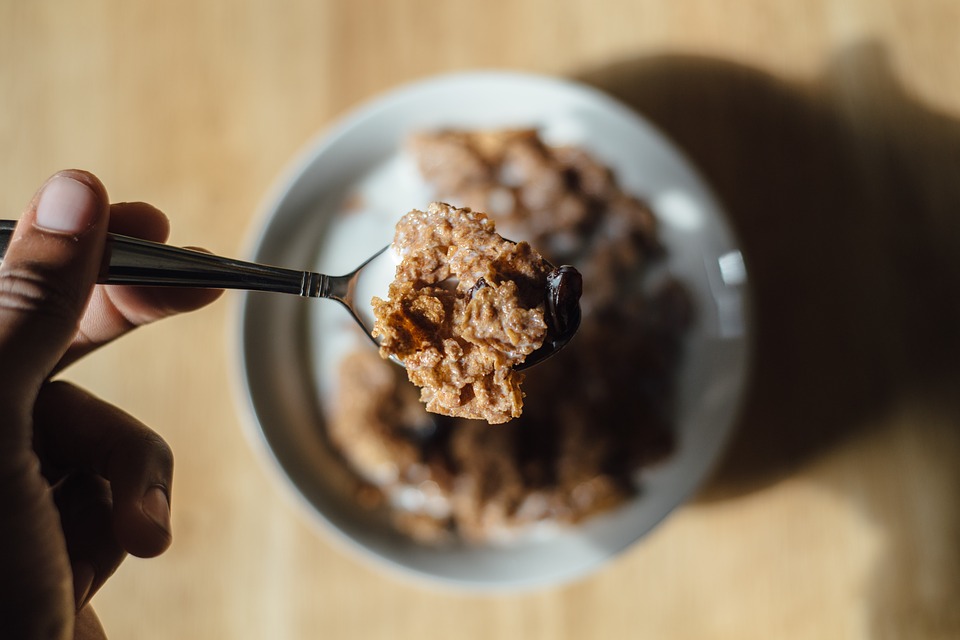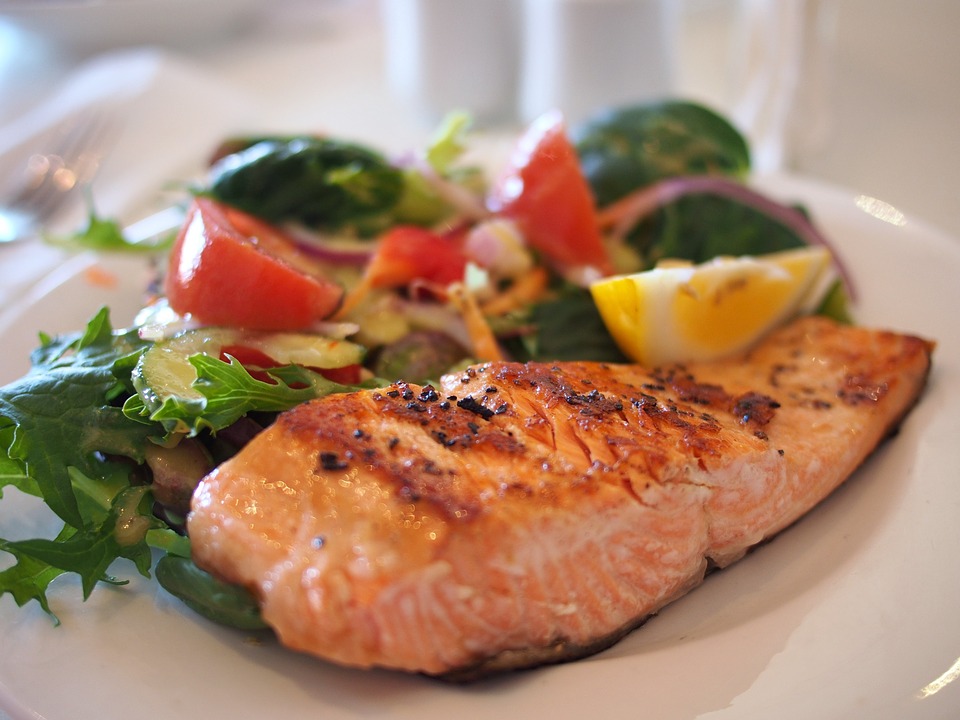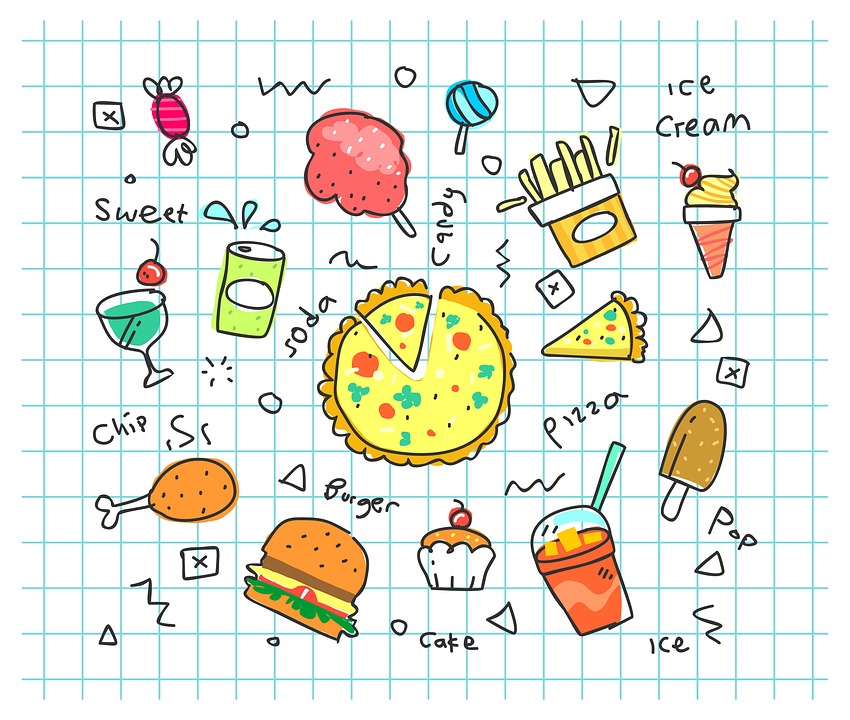The human body is an incredibly beautiful machine. A machine, as we all know, needs some “food” to function. Take the automobile, for instance. You might think that fuel is the food for the automobile since it won’t run without fuel. But think about this a bit more. The automobile also needs air to mix with the fuel, so as to spark when the ignition turns on. It needs oil for lubricating its moving parts, and it needs electrical current to run its electrical systems. The components of “auto-food” thus vary, and each of these components has a different role to play in the working of this machine.

The Components Of Our Food
Let us take a deeper look at the food we eat. Food consists of different components, each of which is useful for some body functions. These components are proteins, carbohydrates, fats, minerals, fibres and water.
| Protein |
| Carbohydrates |
| Fats |
| Minerals |
| Fibres |
| Water |
Both fats and carbohydrates provide energy to our bodies. But healthy fats provide us with nearly double the amount of energy provided by the same amount of carbohydrates. Fats are also able to store themselves within the body in different fat stores, thus providing a steady energy supply.
Of all the components of food, fats have perhaps been in the news the most, and for all the wrong reasons. So much so that the general public view on fats has turned dangerously negative. But we have seen that good fats are responsible for many important body functions, and without the correct intake of healthy fat foods our bodies would simply stop functioning – just like the automobile that would stop functioning were it not to get the different kinds of auto-food.
Obesity and Heart Disease
The reason for the recent fat scare to have taken the fancy of the public at large is the obesity epidemic that has engulfed certain world populations. The obesity epidemic is no doubt real, and it is also driven by fats – but it is driven by bad fats, not good fats. We are also seeing an increase in the incidence of heart disease, even among younger people. This too can be blamed on bad fats, and not the healthy fats.
If we take a step back and think about it, the problems of obesity and heart disease have shot up only in the last 30 to 40 years, whereas the human body has existed for nearly 200,000 years (possibly earlier, but the earliest fossils are from this time). So, there must be something in our dietary habits or in our sources of fats that has changed in the last 30 to 40 years, and which is the likely cause of all the health issues we are seeing.
Since the finger has been pointed at fats in general, it behooves us to take a more detailed view of the different fats – the healthy fats and the unhealthy ones. We will also try to understand the sources of fats that make up our general nutrition so that we can move towards healthy fat foods.
Cholesterol
To understand the impact of fats on our bodies (especially on our hearts), we must look at one more “culprit” that is making the news of late, which is cholesterol. Cholesterol is a fatty, waxy substance that our body needs. But too much of it can clog your arteries, leading to heart disease. Just like the fat scare, there is also a cholesterol scare doing the rounds.
And just like there are good fats and bad fats, there is also good cholesterol and bad cholesterol. HDL cholesterol is the good kind of cholesterol, while LDL cholesterol is the bad kind of cholesterol. The idea for a healthy lifestyle is to keep the levels of HDL high and the levels of LDL low. The thing is that the fats you eat have a direct impact on your HDL and LDL levels, so it is advisable to go fo the good fats. With that in mind, let’s jump in to look at healthy fats vs unhealthy fats.
Consume Healthy Fats
When it comes to good fats, unsaturated fats are generally better than saturated fats. There are primarily two kinds of unsaturated fats – monounsaturated and polyunsaturated. Unsaturated fats lower your LDL levels while raising your HDL levels, thus preventing heart disease and the hardening of your arteries. Avocados, olives, nuts (almonds, peanuts, cashews), peanut butter and certain oils (olive, peanut, canola, sesame) are good monounsaturated sources of fats. The good sources of fats of the polyunsaturated kind are certain seeds (sunflower, sesame, pumpkin, flax), walnuts, soymilk, tofu, certain oils (safflower, soybean, fish) and fatty fish (salmon, tuna, mackerel, sardines).

Omega-3 is another type of polyunsaturated fat that is especially beneficial to your health. Fish is one of the best sources of fats for Omega-3. Vegetarian sources like walnuts, kidney beans, edamame, spinach, brussels sprouts, seaweed and certain oils (canola, soybean, flax) are also Omega-3 healthy fat foods.
Avoid Unhealthy Fats
Trans-fat, especially artificial trans-fat, is the worst type of fat that you can have. It not only increases your LDL, but it also reduces HDL. Primary sources of fats with trans-fat that you should avoid are –
- cookies, pastries, doughnuts, muffins, cakes, pizza
- packaged snacks
- margarine or vegetable shortening
- fried foods (fried chicken, french fries, chicken nuggets)
- foods that list hydrogenated or partially-hydrogenated vegetable oils as ingredients

Moderate Certain Fats
Saturated fats are present in foods like red meat, chicken skin, whole-fat dairy, butter, ice-cream and certain oils (palm and coconut) which are not really healthy fat foods. While they are not as harmful as trans-fat, they do raise LDL levels, and should, therefore, be consumed in moderation.
In this article, we gave you a brief nutrition overview to help you make informed decisions on your food choices. Not all fats are bad. There are some good fats. Healthy fat foods are an essential requirement for the human body. Unfortunately, scaremongering in the media has resulted in people “throwing the baby out with the bathwater.” Sign up for an online course if you wish to get a more comprehensive view of healthy fats and general nutrition.
Looking to enhance your knowledge of nutrition? Join our top-rated professional diploma in nutrition today!
















